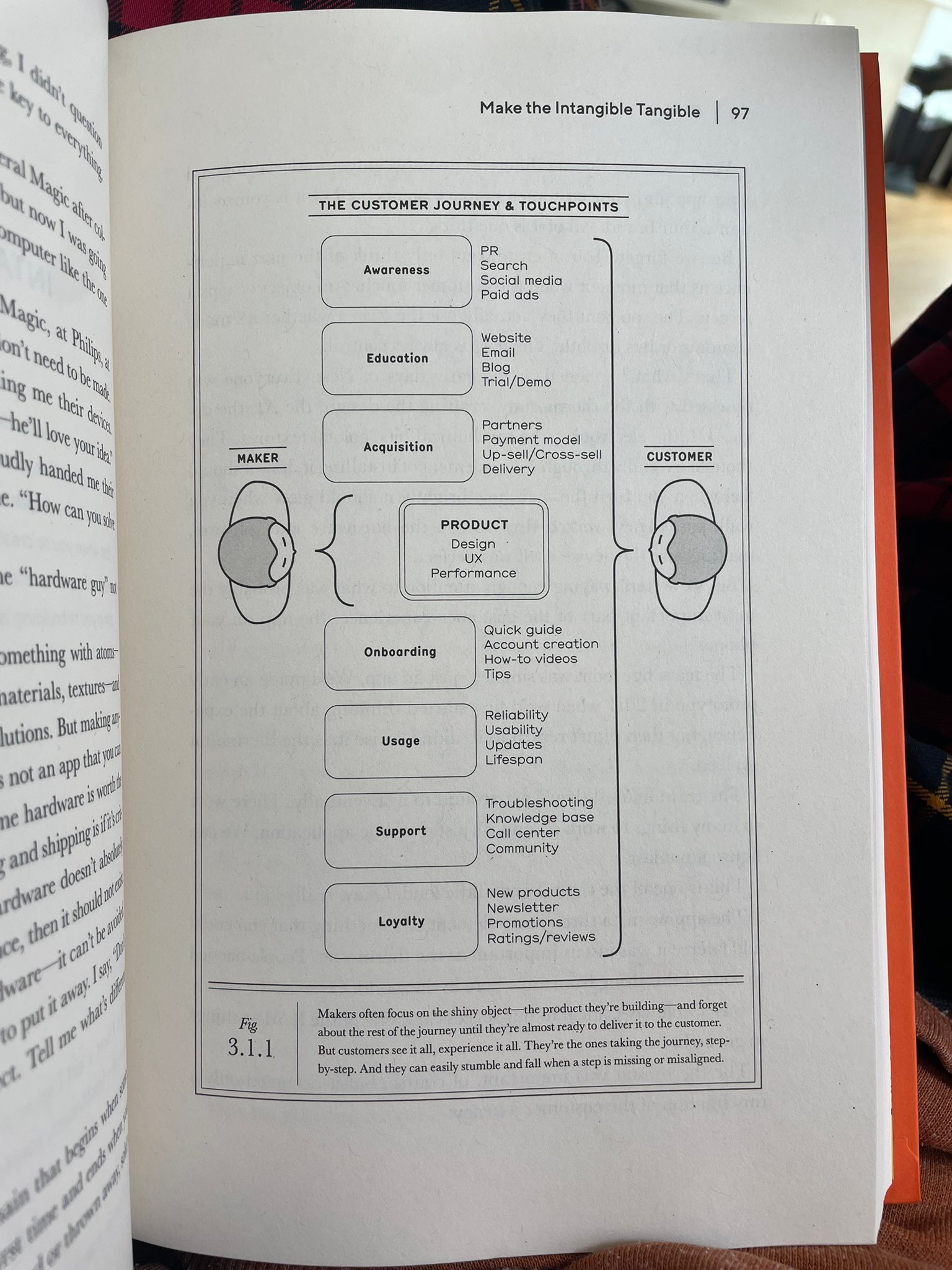
New enterprises
Preface
Prerequisites
You have to know some skills that can do scalable technology such as Programming since our purpose is not to build a clon X with few changes where X can be Uber, Google, and others. Consulting or freelance jobs don’t apply some ideas because you are not building general products.
Learning ethics
Introduction
What are “New enterprises” about?
New enterprises are about understanding companies’ foundations, entrepreneurship, and economy. Two different companies are SME and IDE.
Other kinds of companies such as Small and Medium Enterprise Entrepreneurship (SME) is not our focus. They are companies that will stay small, they are focused on local markets, and they are local services that serve a local opportunity but they are not building companies to go global. They “know” there’s a need locally, and they address that. Examples are dry cleaners, nail salons, restaurants, and pizza parlors. Its market is limited since its service is limited. This is like baseball. This type of business does need not a lot of domain training.
They’re making up systems on how to grow logarithmic, that is, start linearly and after is harder grow where means cash flow and means time. There’s not a tremendous amount of cash flow out and the owner or the family is usually maintaining control of it.
Meanwhile, Innovation Driven Enterprise Entrepreneurship is looking for global services to serve. It requires more cash because its dynamic business is losing money since starting and after growing exponentially since it’s got unlimited markets by its technology. Note that losing money and not selling is not the same. It can start focusing on rich markets, but they are looking to be a general service or a broad market. They raise money from Capital Investors, so they’re going to have shareholders. This is like basketball. Normally, it has more risk associated. These types of businesses need serious domain training —the underlying innovation that will does people pay you. For these reasons and others, they tend to generate more jobs and be more clustered than small companies.
Of course, can be some companies that mix definitions, e.g. consulting companies, ones that search for global customers but they grow linearly and their innovation is based on process, not technology-based.
But, what is innovation? Innovation is an invention that generates value.
Observe that it is a multiplication because if you have none, then you have no innovation.
Innovation requires that you have to have the invention or at least have the skills or resources to invent it, which requires an organization that is going to commercialize the idea and make it a value to the world. You could find different types of innovation, technology, process, position brand, and business model. The most interesting is the Business model e.g. Google changes the advertising industry, indeed when people see ads rather than seeing big ads, see custom ads. You could also categorize innovation as well as disruptive, incremental, or lateral. The former refers to breaking the market, incremental means the new version is 10% or 20% better than the previous one, and the latter is an innovation that you bring out from an old industry to a new industry. Now, we combine types and categories, making a useful distinction between innovations, that is, a product has innovation based on (technology, disruptive), (technology, lateral), and so on.
Consider when people talk about process invention don’t refer to another human process (e.g. Scrum, Kaban, or a new pedagogical education process) but instead something as automation (reducing human intervention).
Generally speaking, the difficulties levels are
This model tells us that ideas are easy to generate since you don’t have to worry about building real inventions and you don’t have to worry about making money; making inventions is more accessible than commercialization because you depend on external feedback that tends to be slow and unpredictable --human perception is subjective about what is the value that is to receive. Although some markets you have the build the distribution, and educate the world since you have invented a new language, and at the same time convince others to use you —Google Play, Internet, Bitcoin, Metaverse, IPFS. Normally you distribute by a well-known distribution center and the people have the language to understand what is your product —a videogame, movie, book, or web app.
Human action moves by something that they consider valuable and for that is subjective. We measure “value” by human behavior since we don’t what happens internally, indeed sometimes we don’t know what happens internally. Since we may not settle down moral statements about human actions to do science, our attempt is to observe reality independently if we like it. Some people restrict what is valuably restricting the definition of the 2030 agenda’s goals. However, the ultimate company’s value is the cash balance (i.e. utility) and balance.
“I want to write a book about wizards” is easier than writing a wizard novel and getting a publisher and that is easier than being a bestseller.
Nobody wants a friend who only says “ideas” and doesn't do anything. However, you have a market pull. In another hand, people have the technology already, but they are looking for a market —technology push, those have a competitive advantage over the rest. The last is who wants entrepreneurs to have passion, but no idea or technology.
myths
TODO
Creative destruction
Joseph Schumpeter
innovación radical o disrupción
Denominación que recibe la tecnología que habilita la aparición de una regla empresarial nueva
en perjuicio de una antigua. La nueva regla se sirve de la tecnología y hace caer en la obsolescencia a la antigua. (Hammer y Champy)
Why do “New enterprises” matter to you?
Research
Founder, a new term for an entrepreneur
Should you be an entrepreneur?
College dropout “dream”
Maker dilemma
We are not referring Table-maker's dilemma, but the Maker's dilemma described in [1].
What happens when you want to make something that the market doesn’t like it? What happens when the market like something and you don’t like it? TODO: SouthPark popularity and virality.
Suppose you love making operating systems and you want to sell your hobbyist operating system. The market doesn't care what you want. The market would say “WTF! Another operating system”, “Why should I change my Windows? I know, sometimes doesn't work well, but works for me and I’m not going to change my working operating system for an unknown one.”, “make something productive as sales management or another CRUD-like”.
YouTube shows people see silly things most of the time, would you do silly videos because you want people to see them?
The consumption of Junket food shows people love them, would you produce them because you want people to do something valuable?
Because the world is moved by incentives, what incentives do you have to build your product?
Enterprise’s role in the Economy
Does technical good practices matters?

Ecosystem
Standards, jobs, industry, roles, …
Y Combinator
Paul Graham
Story
FAQ
Why do people start enterprises?
- Money.
How to be rich —a multimillionaire in dollars?
Some legal paths to being rich are
- born rich or your family became rich after (you don’t work to that but you receive the benefits)
- be an elite athlete in a multimillionaire sport
- be a protagonist or director in Hollywood movies
- be a singer in some profitable music genre
- be a federal politician (e.g. congresspeople, president, dictator, prime minister, etc.)
- found a successful company
- be a CEO or top executive in big companies
- be a basic employee (e.g. programmer) in big companies, startups with stocks or organizations (e.g. Linux)
- work and hope for a good pension
- be a king or queen (it is different to be born rich and be a politician because you can delegate the work to a primer minister and you receive the money)
- solve Millennium Prize Problems (please, solve them)
- win a Nobel prize or Turing Award
- be a YouTuber with millions of views, ads, and other revenues derived
- write a bestseller book such as Harry Potter
- sell paintings
- find some commodity (e.g. gold, petroleum, and so on) in your property
- trading or investing in the finances markets (e.g. stock market)
- win the lottery
- marry someone rich
- receive royalties from patents
https://www.youtube.com/watch?v=CK_BCMA9yoY&ab_channel=JomaTech
Idea generation
We are focused on founding companies based on scalable technology.
Idea = Target Group with goals+New rule with technology.
While the need to listen to music is universal, the new rule enabled by technology - the ability to listen to whatever you want, whenever you want through streaming - was initially limited to a specialized group of early adopters who subscribed to streaming services in the early days of the internet. If you break down these sentences, you must identify the Target group, their goals, and the new goal enabled by technology.
The language problem
The estimation and uncertainty
Evaluation Variables
Impact.
Available technology.
Resources.
Knightian uncertainty
Market share.
Execution.
Should your idea be a business?
Del 1 al 5. Donde 1 es malo y 5 excelente.
Criterios:
Nivel de Innovación.
1. Existe más de un competidor local, el impacto es local, es en esencia el mismo modelo de negocios o el producto es una materia prima. Ejemplos: zapatería, lavandería, gimnasio, una consultura, mineras, PEMEX.
2. Ya existen varios competidores, se ofrece un modelo de negocio distinto y potencialmente un crecimiento exponencial gracias a un nuevo modelo de distribución o de promoción. Ejemplos: una zapatería eccomerce.
3. Ya existe un competidor dominante, la tecnología principal subyacente no es ampliamente conocida y se ofrece una experiencia mucho rápida, accesible o superior con alcance global. Ejemplos: Google, Facebook, TikTok, Amazon, Tesla.
4. No existe un competidor directo, solo opciones alternativas. Crea un mercado completamente nuevo: Bitcoin, Internet, la electricidad.
5. Utiliza el estado del arte del conocimiento científico y tiene un impacto global. Ejemplos: Conseguir una computadora cuántica funcione, conseguir que la IA alcanze la singularidad, resolver algo de los problemas del milenio como NP=P.
Mercado potencial.
1. Prácticamente a nadie le importa. Ejemplos: Una tienda que vende papel higiénico exclusivo o un servicio de alquiler de películas en formato VHS.
2. Resuelve una necesidad local o de nicho, por lo que la ubicación es vital. Ejemplos: restaurante o tienda de ropa génerica.
3. Es un ebusiness de nicho, la marca es de lujo, o es necesario crear alianzas con centros de distribución. Ejemplos: Cerveza artesanal, Supreme.
4. Crecimiento lineal, pero potencialmente todos necesitamos alguno de sus productos o sencillamente es un producto de alta demanda. Ejemplos: Wal-Mart, P&G, Corona.
5. Crecimiento exponencial. Toda la humanidad potencialmente. Ejemplos: Google, Facebook, Uber.
Conocimiento técnico
1. Prácticamente cualquier persona podría hacerlo: comprar bárato y vender a un precio razonable (0 a 6 meses). Ejemplos: una franquicia, la tiendita de la esquina.
2. Una habilidad que requiere una preparación intensiva pero no demasiado díficil (1 año). Ejemplos: programador, zapatero, carpintero, partera, herrero…
3. Se requiere una conocimiento multidisciplinario, el equivalente es una carrera profesional (>=4 años). Ejemplos: medicina, derecho, ciencias computacionales.
4. Se requiere un conocimiento multidisciplinario más conocimiento especializado en alguna área de interés, el equivalente es una maestría o doctorado.
5. Solo unos cuántos en toda la humanidad saben cómo hacerlo y la dificultad es nivel genio.
Good places to start
Your business domain should be easy to launch with no law intervention and get easy and fast costumers feedback. After that, you need some short value proposition that you can build really or you have to.
Examples are
Distributed systems, especially cloud.
Videogames.
SaaS.
Manufacture Robotics.
Web3.
Bad places to start
A bad place to start a company is a big regulated market, you have so regulated that you have got a big pocket and a lot of patience to launch some product. Also no database management apps are not going to be enough useful (e.g., simple CRUDs), as well as apps that require crowd buy-in (e.g., apps that would require large numbers of people to contribute content to be viably useful)
Examples are Health and Military .
Filter process
At first, don’t worry if an idea is viable or feasible.
Team Formation
Salaries
Bootstrapping Marketing
Developer relations

Market segmentation & primary customer research
Competitive advantage. Why you?
Business economics
Performance metrics
https://twitter.com/david_bonilla/status/1579827658984071171
Business model
Bad and good costumers
Classification
https://twitter.com/andrewchen/status/1590874178156392457
Pay-what-you-want model
https://en.wikipedia.org/wiki/Humble_Bundle
Sales and distribution
https://www.youtube.com/c/VendehúmosTV/videos
https://www.youtube.com/watch?v=LmVQw4hY5IA&ab_channel=VendehúmosTV
The web is the first choice for distribution
At least you have constraints, today the web is your first choice to build and distribute your products. TODO: evidence.
Priorities
Design and build your product
Noncode movement
Container movement
Product definition, development to delivery
References
https://martinfowler.com/articles/cant-buy-integration.html
Financing
You
For most people who don’t have contact or have money bootstrapping is the most common way.
Venture capitalists
Case study
How did different people in the past raise money? Where the money comes from at the start?
Bill Gates
Elon Musk
Rockefeller
Dale Carnegie
Legal considerations
Next steps
References
- "Hackers and Painters." 30 Jan. 2023, paulgraham.com/hp.html.
Zero to One. Thiel.
Tools of Titans. Tim Ferris.
Lean Startup. Eric Ries.
[Aulet] = Aulet, Bill. Disciplined Entrepreneurship: 24 Steps to a Successful Startup. Wiley, 2013. ISBN: 9781118692288. [Preview with Google Books]
Customer development. Steve Blank.
Hard Drive: Bill Gates and the Making of the Microsoft Empire.
How Google Works: Forew. by Larry Page Paperback – 12 Mar. 2015 English edition by Eric Schmidt (Autor), Jonathan Rosenberg
Idea Factory: Bell Labs by Jon Gertner
StartupAcademy. "Google Founders Interview - Larry Page and Sergey Brin." YouTube, 27 Mar. 2018, www.youtube.com/watch?v=T8xg-eNqF-o&ab_channel=StartupAcademy.
https://ocw.mit.edu/courses/15-390-new-enterprises-spring-2013/
https://twitter.com/i/status/1533605518975152129
http://www.paulgraham.com/articles.html
https://startupclass.samaltman.com/
https://twitter.com/joshuaackerman/status/1534197304596434949
https://www.aaronbenitez.com/obsesionados-con-la-ingenieria/
https://www.aaronbenitez.com/querido-chico-corporativo/
https://twitter.com/ProductHunt/status/1540741708903723008
Startup School
https://en.wikipedia.org/wiki/Big_Tech
https://www.youtube.com/watch?v=LGEG9FoiOgU&ab_channel=RicardoB.Salinas
https://www.youtube.com/watch?v=AU9S_2aGGkY&ab_channel=RicardoB.Salinas
https://www.youtube.com/watch?v=qpTVfrqWtNg&ab_channel=OsoTrava
https://www.youtube.com/watch?v=s_DNDBZCtNI&ab_channel=OsoTrava
https://www.youtube.com/watch?v=Ncb9uZHwAc0&ab_channel=OsoTrava
https://www.youtube.com/watch?v=uxIUDPj3tYw&t=8s&ab_channel=LexClips
https://jakobgreenfeld.com/insight-porn
https://www.youtube.com/c/ycombinator/
https://www.youtube.com/channel/UCxIJaCMEptJjxmmQgGFsnCg
https://www.youtube.com/c/500Global/videos
https://www.youtube.com/c/stanfordgsb/videos
https://www.youtube.com/watch?v=yGKFdwhylXM&ab_channel=TechLead
ORGANIZACIÓN DE EMPRESAS TECNOLÓGICAS UAM
MIT OpenCourseWare. (2023, January 12). MIT OpenCourseWare. Retrieved from https://ocw.mit.edu/courses/15-390-new-enterprises-spring-2013